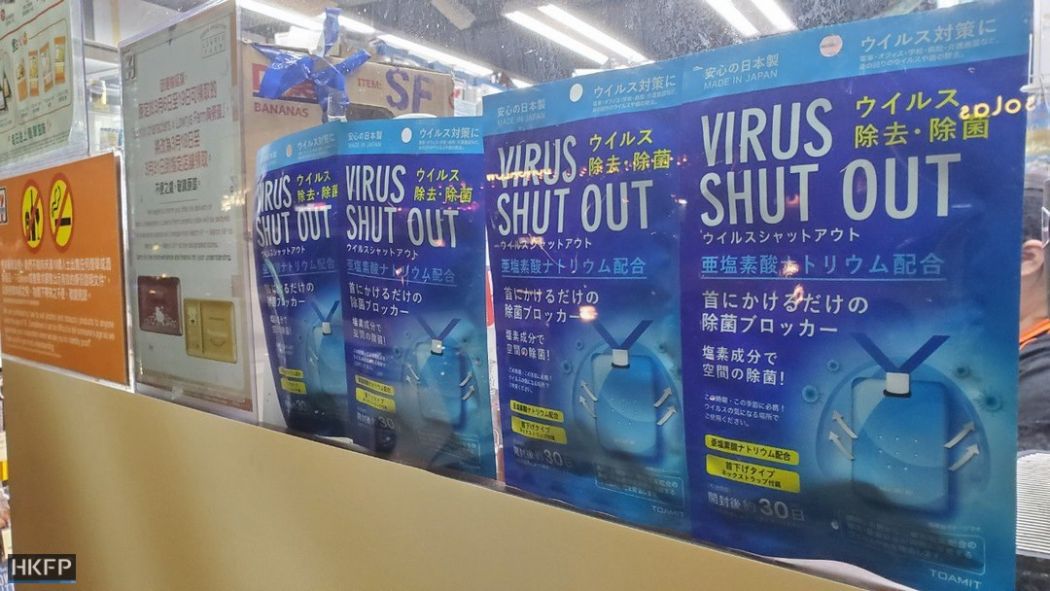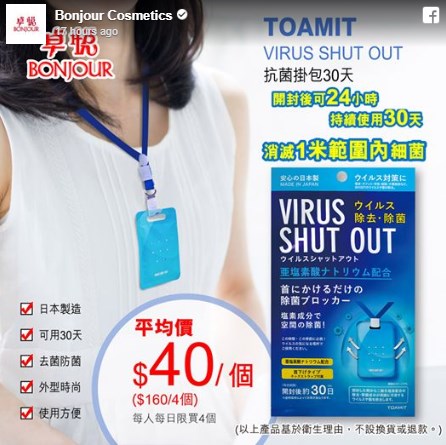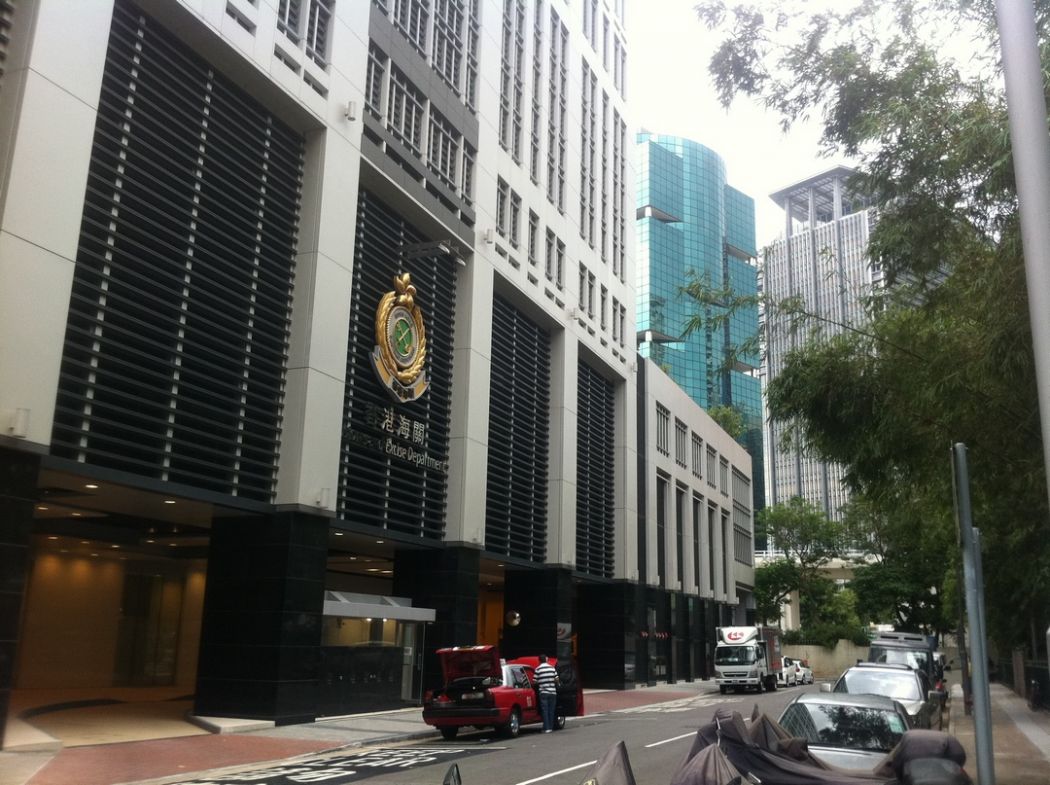A Japanese “anti-viral” product that has been banned around Asia remains widely available in Hong Kong stores, despite dubious claims that they can protect against viruses. Retailers have defended selling them during the coronavirus pandemic, but the Customs and Excise Department has told HKFP they are looking into the devices.
Toamit’s Virus Shut Out claims that it is “experimentally proven to effectively block airborne particles and bacteria, as well as various epidemic viruses… reducing the chance of being infected or infecting others.” The manufacturers claim it is suitable for the sick, elderly, children, and people with low immunity.

The product contains chlorine dioxide, but Dr Ariane Davison – a virologist and immunologist – told HKFP that the necklace is a “complete scam,” adding that it “will do nothing to protect you by inactivating respiratory viruses.”
“[T]he device is worn around your neck – nowhere near your nose and mouth which are the key portals for Covid infection. Should you bring the device closer to your face, the active ingredient, chlorine dioxide, would cause severe respiratory and eye irritations and skin burns, as it is highly corrosive,” she said.
Davison said that chlorine dioxide is used to sterilise hard surfaces, and should not be used near the face: Furthermore, unlike the targets of anti-mosquito devices such as ‘Parakito’ which work to repel flying insects, viruses are inanimate, and do not ‘migrate’ or become attracted to the ‘Virus Shut Out,’ worn around the neck. “This device is useless in protecting against Covid-19.”
Banned around Asia
The device has been banned by eBay and Facebook, and both Vietnamese and Thai authorities have confiscated them.
Vietnamese authorities have said the product has no scientific basis. However, it is still available in Hong Kong at Bonjour stores, SASA, at 7-Eleven convenience stores, on HKTV mall and from Watsons pharmacies, for under HK$100.

Watsons defended the product in a response to HKFP, saying it was being advertised accurately: “Please note that supplier has made an official announcement on its website on 10 March 2020 to advise retailers to refrain from copying or advertising as if the concerned Virus Shut Out product is effective against the new coronavirus so as not to mislead the consumers. For details, please refer to this link. We sell this product at stores and online and we never make any such claim as well.”
A spokesperson for Bonjour said they were still learning about the situation: “[T]he company has not mentioned the product is used against coronavirus and has not received any notification from customs at this moment.”
7-Eleven’s operator Dairy Farm did not respond in time for publication.
The Customs and Excise Department told HKFP on Friday that it enforces the Consumer Goods Safety Ordinance and Trade Descriptions Ordinance, “which aims at protecting consumers by prohibiting false trade descriptions, false, misleading or incomplete information and misstatements in respect of goods provided in the course of trade.”
“Hong Kong Customs is looking into the matter that you raised in [the] enquiry,” the statement said.

Those who violate the Trade Descriptions Ordinance risk a maximum fine of HK$500,000 or imprisonment for five years.
Toamit did not respond to enquires.
First detected in Hubei, China, Covid-19 has infected more than 128,000 people globally, and more than 4,700 have died from the SARS-like disease.
